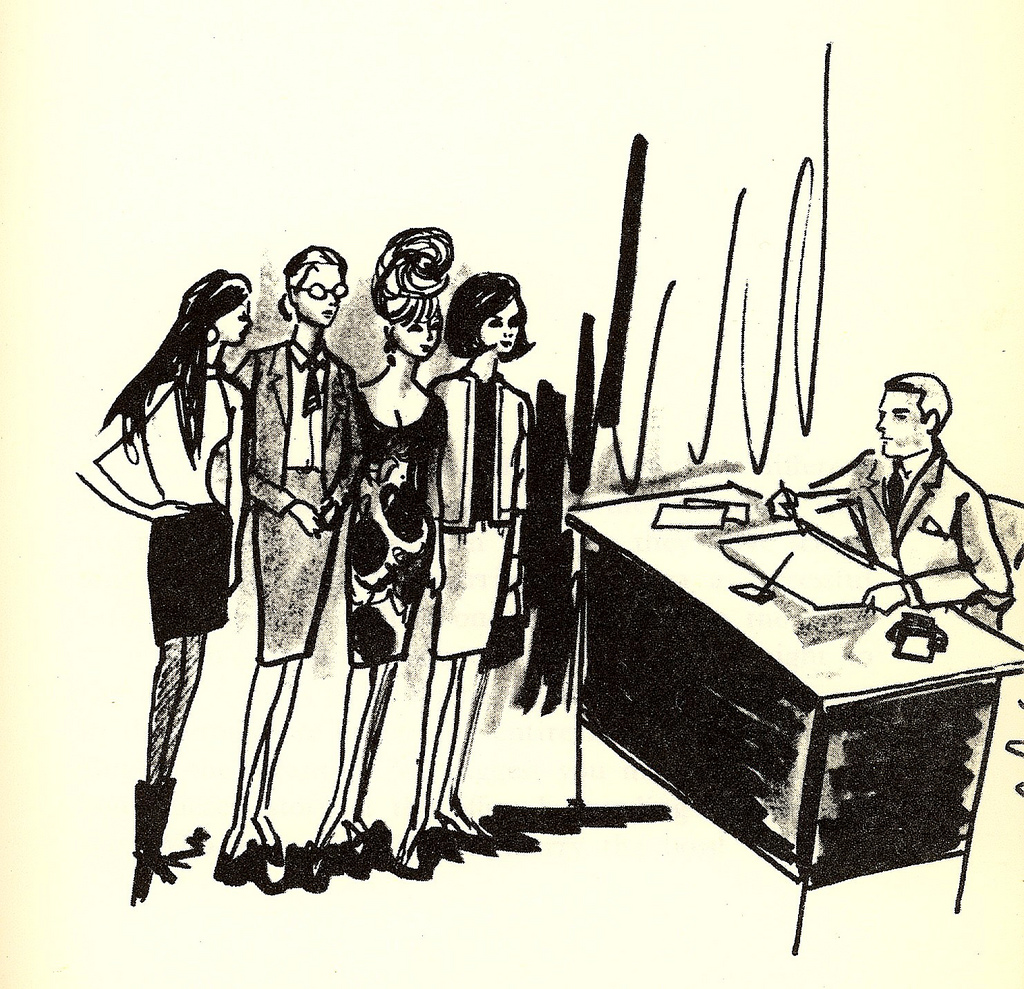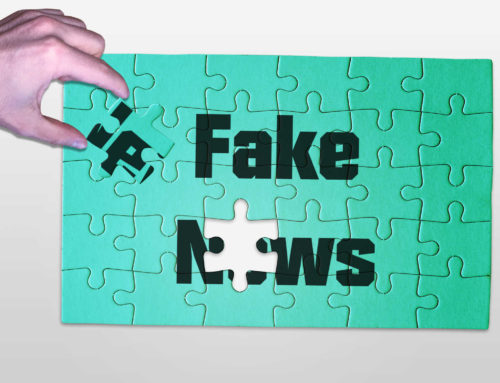 I know it’s been a while, but you remember the story of the intern and the executive coach, Part I.
I know it’s been a while, but you remember the story of the intern and the executive coach, Part I.
You do, don’t you?
In case you don’t, it was
Wherein an intern for what seems to be a fairly decent PR firm committed a huge gaffe by emailing a ton of people to ask who was “in charge of receiving press releases” at their organization …
Image: opensourceway via Flickr, CC 2.0
… and did so by including all their email addresses (including mine) in the “cc” field as opposed to the “bcc” field …
… and never mind that half the outlets she included didn’t have anything to do with the garment and accessories industry (apparently the PR agency’s beat).
Long story short, I alerted the firm, they (must have) chastised the intern (because not long thereafter, I received – via bcc – a profusely apologetic note from her), and you’d think all was over and done with.
Not by a long shot!
Apparently, one of the many people included on the original email was an executive coach.
Someone who apparently coaches “executives” to be their best, and to succeed in the workplace.
And said executive coach has apparently co-authored a book (possibly several) on said topic, one of which is about “decoding the executive woman’s dress code.”
 And the reason I know all that is because, shortly before (three minutes) the intern sent across her profuse apology, this executive coach took it upon himself to “coach” the intern on the real problem that career women face. You see, apparently it’s all because we don’t take our “corporate uniform” seriously.
And the reason I know all that is because, shortly before (three minutes) the intern sent across her profuse apology, this executive coach took it upon himself to “coach” the intern on the real problem that career women face. You see, apparently it’s all because we don’t take our “corporate uniform” seriously.
Image: tiny banquet committee via Flickr, CC 2.0
I quote:
There is one problem that career women face that often goes unaddressed. It is what it means to be wearing the right clothes. A woman’s wardrobe is an essential component of her presentation. It is as important as her handshake, her eye con…tact and her attitude.
The faux pas many women make is that they believe their wardrobe is a reflection of who they are. They are attempting to project their distinctiveness and their individuality. Others prefer to wear what is comfortable thinking that this is appropriate since they’ve noticed others in the office also dress this way. And then there are those who want to be known for their style and creativity. They want to stand out from the crowd.
All these women, instead of sending the right message they are signaling to those above that they are not a team player, that they are not ready for promotion.
The mistake is that they don’t view the clothes they wear to work as their corporate uniform.
Don’t lose the point that the real purpose of “the uniform” isn’t for erasing your identity; its purpose reflects the symbolism that “you’re part of the team.” It creates a visual representation of a common goal and a shared purpose.
And how do I know this?
Because I was bcc’d on that email to the intern … along with, I’m pretty sure, everyone who was first included on the original email, in the cc field.
At first, I laughed (remember, this was before the intern’s abject apology had come through). I figured maybe this was an editor having a good day, making a joke.
Then I re-read the email and realized… OMG, this is someone who’s serious. Because he’s attached the PDF of his latest book to the email… and is taking advantage of the fact that he now has a gazillion email addresses at his disposal to blatantly pitch himself.
Never mind that some of them were women who decidedly wouldn’t take kindly to being told how to dress for success (and that would include me), or that some of them were staffers at outlets that were grossly inappropriate for the pitch in the first place.
But hey, he had their (our) email addresses, so why not send out a blanket pitch, right?
I asked him as much:
When I first saw your email, I burst out laughing… then I realized that you were serious. At least, I think you were/are… were/are you?
Did you really try to make hay of an intern’s horrid mistake to pitch a bunch of reporters/bloggers, because their email addresses were available to you?
Or did you think we were all interested in your views on what women should wear… because our email adresses were available to you?
I’m genuinely curious. Do enlighten me.
Of course, I never heard back. I even looked the guy up on Twitter, and was tempted to tweet him, but then I figured … what good would that do?
He’d probably already decided I was a beeyatch/not worth his time, so nothing I’d say/do would make him change.
Me, though, I think what he did was inexcusable. It’s one thing for an intern to make a mistake. That’s what interns do. Heck, that’s what we all do, though hopefully not as many as interns might.
But for a seasoned professional to try and take advantage of an entry-level employee’s mistake… well, that’s practically criminal, in my opinion.
What do you think? Do you think I’m being too hard on the executive coach? Or would you have reacted the same way? Do share, I’d love to know!


![[EVENT]: PR Hacks for Small Biz (online)](https://shonaliburke.com/wp-content/uploads/2021/06/FB-Ad-1200x800-01-01-01-Copy-500x383.jpeg)






Wowzer. That’s bold, and lacking in tact, strategy, or heck…thought. Wow.
And @howieg, where’s my uniform, buddy?
@EricaAllison I KNOW!!!
@ancitasatija Belated thanks for sharing!
@shakirahdawud I know! And thank you for sharing.
Oh and @shonali @rachaelseda @Ancita @KDillabough @Krista @mdbarber @ShakirahDawud @CarolHamptonRasco your uniforms are in the mail. It will help you get promoted. Hope you liked my choice in styles. Paisley Jump Suits are so in these days.
@HowieG @shonali @rachaelseda @Ancita @Krista @mdbarber @ShakirahDawud @CarolHamptonRasco Ooooh, paisley:) Do they come with love beads, platform shoes and Woodstock memorabilia?
@HowieG @shonali @rachaelseda @Ancita @KDillabough @Krista @ShakirahDawud @CarolHamptonRasco I was hoping for mini skirts, poorboys and fishnets.
@HowieG I sure hope the outfit arrives before Labor Day as I sure need it immediately post-Labor Day to wear to my Fall Exec. Comm. meeting!
@CarolHamptonRasco Hahahahah!!! @HowieG
I was getting ready to tweet using Shareaholic and thinking of so many other titles for this post.
First off Ditto @KenMueller
Second I wish to address two side points here. First is it is possible he didn’t cc everyone on purpose and just was a dumbass and then realized what he did and went and hid in embarrassment when you contacted him. BUT if not, and this was premeditated kind of makes him out to be a slime bag/opportunist.
@HowieG Sure, he *could* have cc’d everyone by mistake. But, here’s the thing: his email was carefully written out (you’ve read most of it), AND he attached a PDF of his book to it. Now, why would an intern care about what this person’s views are on womens’ “corporate uniforms”? So to me, he was taking advantage of the situation. And you know what, if I were one of the editors/journalists on that list (I mean, for a “real” outlet), I’d have shared that info far and wide in my newsroom, so that if anyone ever received a pitch from this guy, they’d know to blacklist him. @KenMueller
Wow. Just wow. It never ceases to amaze me how people can turn any situation into a sale pitch.
I guess I’m later than Kirk on this one. But I just can’t believe the gall of the coach to take advantage of this situation. It is unethical and it’s just plain wrong. What is wrong with people these days? That’s a rhetorical question as we all know there are lots of people out there who often don’t think before they act.
@mdbarber Oh yes…!
Late weighing in on this, but this person takes the concept of “unprofessionally tacky” to an amazing extreme. There’s an old saying: “Be sure brain is in gear before putting mouth into motion.” In this case…assuming there’s a “brain” to begin with…”before putting fingers into motion.”
And it gets weirder and weirder out “there”!
@KirkHazlett I love that saying! I’ve never heard it. I think I will print it out & put it up on my wall, because it’s a good reminder for all of us!
Oh.my.goodness!
@JGarant LOLOL!
Oh god!! The exec coach is sooo LAME !!!…You did the right thing Shonali!
@adamtoporek Thank you for sharing (and commenting!)… pretty crazy, huh? And HI!!!
@shonali Been off the twitter box past few days. My pleasure Shonali — and hi back! You still doing your boot camp stuff?
@adamtoporek Me too, just getting back (to Twitter, I mean). Yes, I am! (re: #mybootcamp) – you doing good?
This story just gets curiouser and curiouser! Thank you for emailing him, Shonali. We all needed that.
@ShakirahDawud I don’t know if it made any difference to him, though. He probably just wrote me off as a “social media type beeyatch.” Oh well. At least I tried, right?
Inexcusable. Unacceptable. Unbelievable. You nailed it Shonali. Cheers! Kaarina
I’m not even sure how guys are supposed to dress, so I’m staying out of that part!
You know, it’s the fact that the person is teaching people how to represent themselves that really makes it so much worse. How did he represent his brand by doing this? Not very well.
@adamtoporek I suspect bdorman264 will tell you how guys are supposed to dress… ;)
And my feelings exactly!
@Shonali @adamtoporek Ok, ok; I was just trying to sell my book vie e-mail mkting…..so sue me…
@shonali just read the post about the intern and coach. I’m hoping he responds because that is just silly.
@hermusings Well, he didn’t respond to me the first time, so I highly doubt I’m on his “watch list” now…!
SUPER LAME. First of all his “pitch” didn’t relate in the slightest…how does he know what the intern was wearing and why assume that all the people on the original email were women, and women that “needed his advice” at that. Beyond all of this…why in the heck does some man think he knows the key to how a woman should dress and worse off, the fact that he has the audacity to write a book about it makes me want to vomit. #justsayin
@rachaelseda It made me want to vomit too. He was careful, though; his co-author is a woman, and I’m sure that was driven at least in part by the fact they knew women (at least some) would react like this. But still – it is never, EVER a good idea for men to tell women what not to wear. Unless it’s Clinton on WNTW.
I think you should have spoken up to him to let him know being a duchebag isn’t a good manners for an “executive coach,” especially with intern who can’t defend herself.
It would have been much better, for instance, if he had the dialogue with a seasoned professional such as yourself… He would have gained first hand experience of “boot up a_s,” which is another series of books he could have then contributed his first hand experience to.
Although he would probably just be the same douchbag who would then discourage women, no interns, from wearing boots in the workplace :o
@Mark_Harai Well, I think that’s what I implied without using the DB word. ;) Your comment made me laugh, Mark! Especially the last bit about being the same DB. Reminds me of that old saying, a leopard doesn’t change its spots…
I have been eagerly awaiting the second part to your story!! It clearly looks like this individual was exploiting the situation– did he *really* want to help that poor intern with her choice of professional wardrobe? How was this tied to the mistake she made? Did it have anything to do with what she was wearing?
This really looks like a situation of “you can’t pull a PR trick over on PR people” (even if not all the bloggers were PR folks). We know what pitches look like and when someone is taking advantage of a situation for their own pitching purposes. It’s sad, but it happens because most folks committing that error really think there’s nothing wrong with it.
Thanks for sharing this all-together bizarre pitch experience!
@Krista That’s what I thought. And the poor intern was clearly mortified by the mistake, so really, what need was there to do this? I thought it over and over and over and kept coming to the conclusion that this person was taking advantage of all the email addresses suddenly in his possession. So not cool.
Are you being too critical of the coach, you ask…absolutely NOT! What this coach did was fully, totally, completely inexcusable nor justified. Good for you for following up with said “coach”…a self-labeled “executive coach” at that. Not.
@CarolHamptonRasco So sorry to reply late but it’s been a heck of a weekend…! Thank you also for being the first commenter here, Carol. :) I know… I just thought it was beyond the pale. I mean… who DOES that?!